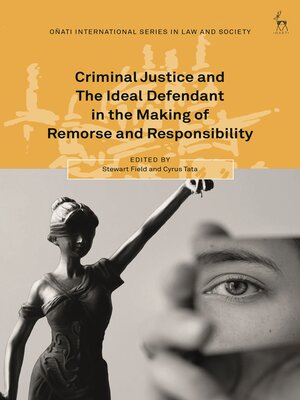Criminal Justice and the Ideal Defendant in the Making of Remorse and Responsibility
ebook ∣ Oñati International Series in Law and Society
By Stewart Field

Sign up to save your library
With an OverDrive account, you can save your favorite libraries for at-a-glance information about availability. Find out more about OverDrive accounts.
Find this title in Libby, the library reading app by OverDrive.



Search for a digital library with this title
Title found at these libraries:
| Library Name | Distance |
|---|---|
| Loading... |
This book investigates how defendants are assessed by criminal justice decisionmakers, such as judges, lawyers, probation officers, parole board members and those involved in restorative justice. What attitudes and emotions are defendants expected to show? How are these expectations communicated?
The book argues that defendants, at various stages of the criminal justice process, are expected to show a (more or less) free acceptance of guilt and individual responsibility along with a display of 'appropriate' emotions, ideally including 'genuine' remorse. It examines why such expressions of individual
responsibility and remorse are so important to decision-makers and the state.
With contributors from across the world, the book opens new comparative possibilities and research agendas.
The book argues that defendants, at various stages of the criminal justice process, are expected to show a (more or less) free acceptance of guilt and individual responsibility along with a display of 'appropriate' emotions, ideally including 'genuine' remorse. It examines why such expressions of individual
responsibility and remorse are so important to decision-makers and the state.
With contributors from across the world, the book opens new comparative possibilities and research agendas.







